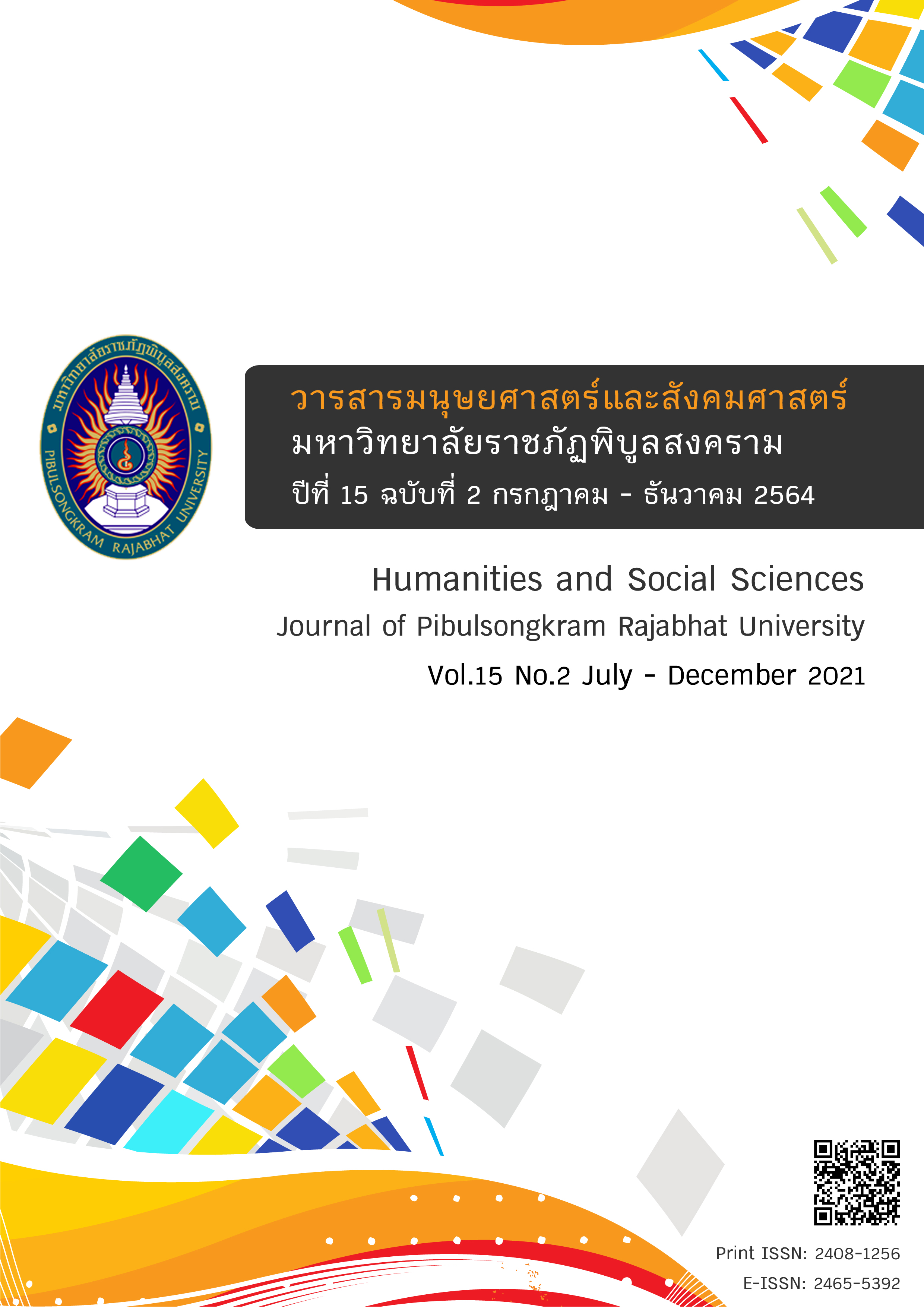The Retention for Young Employees of The Hotel Business (Thailand)
DOI:
https://doi.org/10.14456/psruhss.2021.24Keywords:
Exploratory factor analysis, Young employees, Cause of resignation, RetentionAbstract
The hotel business faces a problem about the young employees resignation which negatively affects the quality of service. Maintaining the new generation of employees with specific behaviors requires appropriate practices that are consistent with the cause of the resignation. The objectives of this research were to study the factors affecting the resignation of the young generation of employees and the method of maintaining the young generation of hotel business in Thailand. The process used the mixed research methodology of quantitative research and qualitative research. The samples in the quantitative research were 500 young generation employees and the qualitative research was an in-depth interview with 10 Human Resource managers (HR) of the hotel business. Data in the questionnaire were analyzed by Exploratory Factor Analysis with Principal Component Analysis and Perpendicular Rotation Axis with Varimax. Qualitative research used content analysis techniques for data analysis. The study found three factors affecting the resignation of young generation of employees. First, they lack patience. Second, they have high self-confidence, and third, they aspire for professional growth. With regard to the method of maintaining the young generation of hotel business employees, the results of the study suggest that in the following are important : consultation, teamwork, healthy working environment and conduct, training and challenging assignments.
References
กัลยา วานิชย์บัญชา. (2549). สถิติสำหรับงานวิจัย (พิมพ์ครั้งที่ 2). โรงพิมพ์มหาจุฬาลงกรณราชวิทยาลัย.
การท่องเที่ยวแห่งประเทศไทย. (2560). Thailand travel guide destinations and maps. สืบค้น 10 พฤษภาคม 2560, จาก https://thai.tourismthailand.org/สถานที่ท่องเที่ยว--2887.
นงเยาว์ หนูไชยา ณ กาฬสินธุ์. (2545). ความฉลาดทางอารมณ์ในทัศนะทางพระพุทธศาสนา. กรุงเทพฯ: มหาวิทยาลัยมหาจุฬาลงกรณราชวิทยาลัย.
นิติพล ภูตะโชติ. (2559). การจัดการทรัพยากรมนุษย์ในอุตสาหกรรมโรงแรม. กรุงเทพฯ: จุฬาลงกรณ์มหาวิทยาลัย.
พระราชวรมุนี (ประยูร ธม มจิตโต). (2541). อีคิวในแนวทางพุทธศาสนา ในรวมบทความทางวิชาการอีคิว. กรุงเทพฯ: เดสท๊อป.
ลือรัตน์ อนุรัตน์พานิช. (2558). Generation Y ร้ายจริงหรือ. กรุงเทพฯ: ภก.ลือรัตน์ อนุรัตน์พานิช.
Cennamo, L., & Gardner, D. (2008), "Generational differences in work values, outcomes and person-organisation values fit". Journal of Managerial Psychology, 23(8), 891-906.
Deery, M. A., & Shaw, R. N., (1999). An investigation of the relationship between employee turnover and organizational culture. Journal of Hospitality & Tourism Research, 23(4), 387–400.
Del Campo M., Tijerina, P., Bhaskaran, H., Mohr, S., Yang, Q., Jankowsky, E., Russell, R., & Lambowitz, A. M. (2007) Do DEAD-box proteins promote group II intron splicing without unwinding RNA?. Mol Cell, 28(1), 159-66.
Drew, G., & Cronk, L. (2010). Why do we need to coordinate when classifying kin? Behavioral and Brain Sciences, 33, 385-386.
Gary, D. (1999). Human Resource Management. Florida: Prentice Hall PTR.
Hansen, R. S. (2015). Perception vs. Reality: 10 Truths About The Generation Y Workforce. Retrieved May 10, 2017, จาก https://www.livecareer. com/resources/careers/planning/gen-y-workforce
Manley, J. E. (1996). Comparative research in human resource management: A review and an example. International Journal of Human Resource Management, 7, 585-604.
Queensland Tourism Industry Council. (2012). Determining Levels of Youth Employment. In Youth Employment in Tourism and Hospitality. Andreas Walmsley: Goodfellow Publisher.
Schawbel, D. (2012). millennial branding. Retrieved December 25, 2016, จาก www.millennialbranding.com
Downloads
Published
How to Cite
Issue
Section
License
Any articles or comments appearing in the Journal of Humanities and Social Sciences, Rajabhat Phibulsongkram University, are the intellectual property of the authors, and do not necessarily reflect the views of the editorial board. Published articles are copyrighted by the Journal of Humanities and Social Sciences, Rajabhat Phibulsongkram University.









